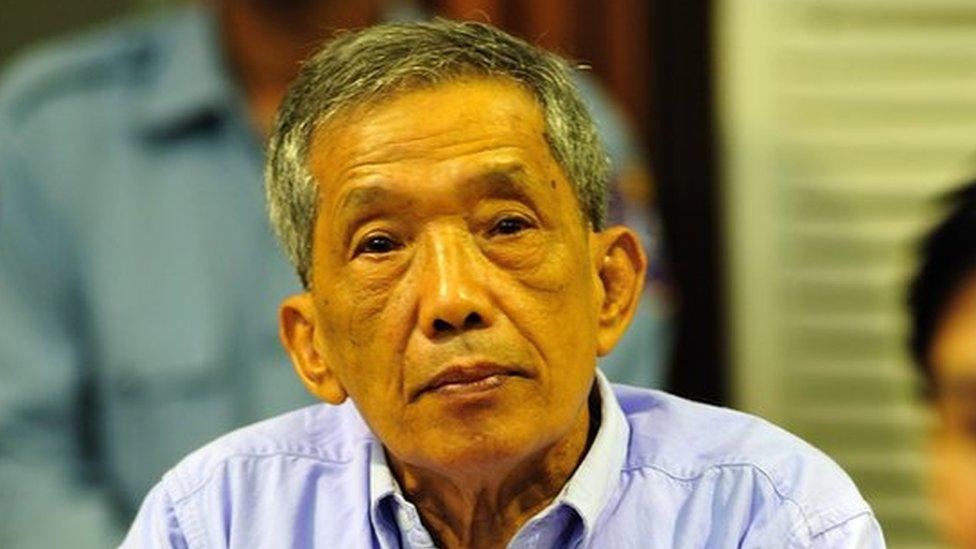Life term for Cambodia Khmer Rouge jailer Duch
- Published
The BBC's Guy Delauney: "The judges comprehensively demolished all of his arguments"
Cambodia's UN-backed genocide court has rejected an appeal by Khmer Rouge jailer Duch and increased his sentence to life imprisonment.
Duch, born Kaing Guek Eav, was jailed in 2010 for his role in running a notorious prison where thousands of inmates were killed.
He had appealed on the grounds that he was a junior official following orders.
But judges rejected his claim and increased his sentence from 35 years to life.
Duch - the first senior Khmer Rouge official to face charges before the court - was convicted of crimes against humanity in July 2010. He appealed against the verdict in March 2011.
The 69-year-old was the commander of Tuol Sleng prison, where at least 15,000 men, women and children deemed enemies of the regime were tortured and then executed in "killing fields" outside Phnom Penh.
He had argued that he should never have been tried, claiming that he was a junior official following his superiors' orders on pain of death.
Prosecutors, meanwhile, argued that his sentence was too lenient. Many survivors were outraged when he was sentenced to 35 years, because he could be free in 18 years given time already served.
The appeal court judges ruled that the initial prison term did not "reflect the gravity of the crimes".
"The crimes by Kaing Guek Eav were undoubtedly among the worst in recorded human history. They deserve the highest penalty available," Judge Kong Srim said.
Duch showed no emotion as the verdict was delivered. But prosecutors praised the ruling.
"We can say that justice has now been served after more than 30 years," Chea Leang said. "To us and to the victims, this is a great success."
Hundreds of survivors gathered at the Phnom Penh court to hear the final verdict.
Duch's case is the first to be concluded by the court against perpetrators of crimes committed during four years of Khmer Rouge rule in the late 1970s.
The regime attempted to create an ideal communist society by forcing city residents to work as peasants in the countryside, and by purging intellectuals, middle class people and any supposed enemies of the state.
Up to two million people - about one-third of the population - are believed to have been killed or died of over-work and starvation.
The three most senior surviving leaders of the regime were put on trial for genocide and crimes against humanity in November 2011. Their trial is ongoing.
The cases against them have been separated to speed up proceedings as the defendants are all in their 80s.
- Published17 November 2011

- Published2 September 2020

- Published26 July 2010
- Published26 July 2010
- Published28 March 2011
- Published21 November 2011
